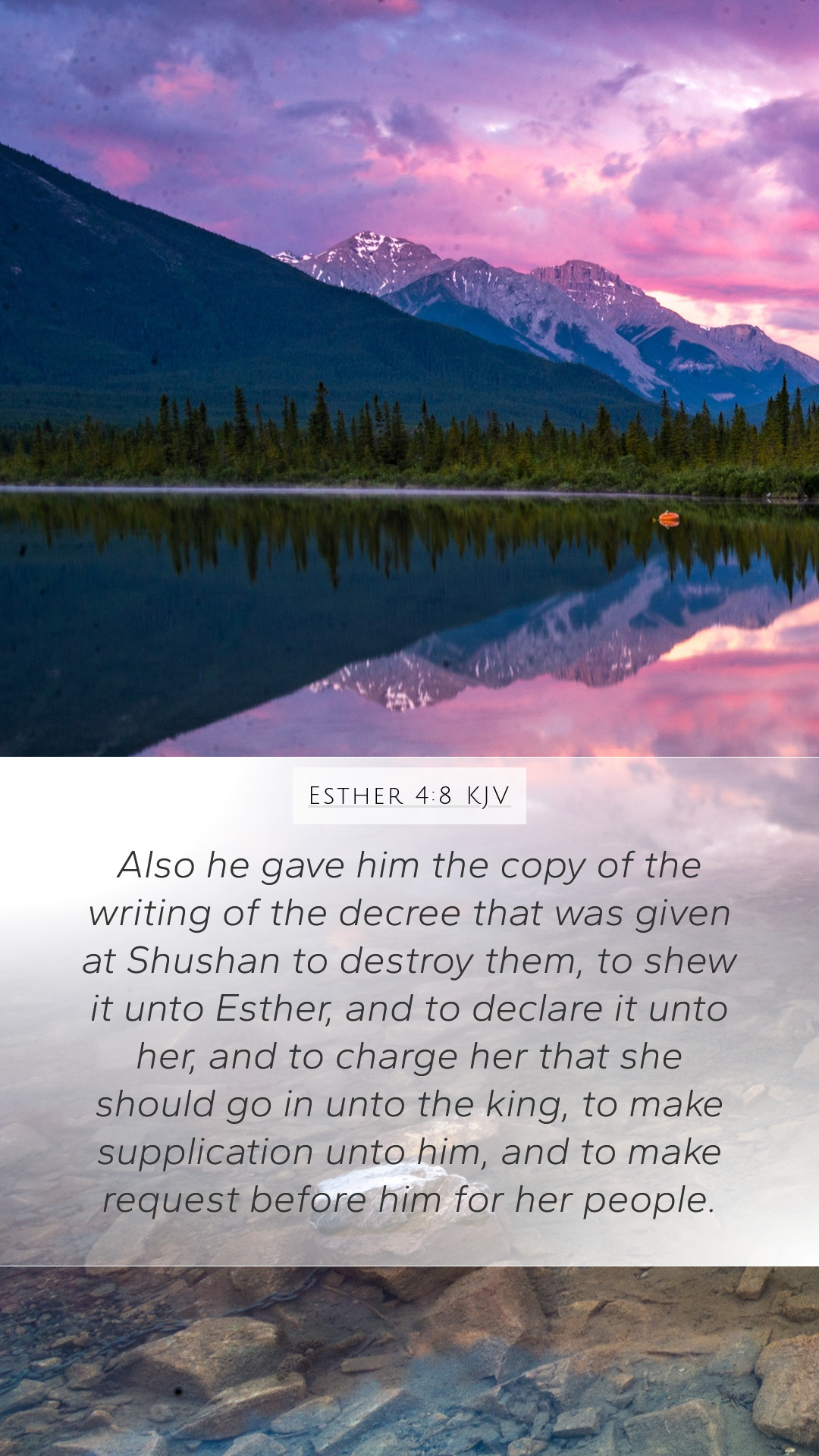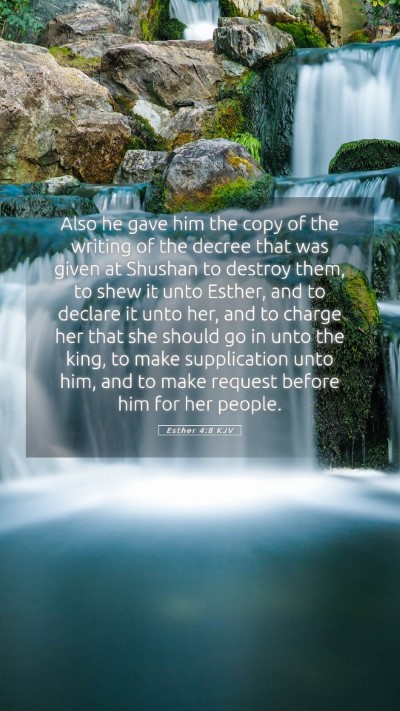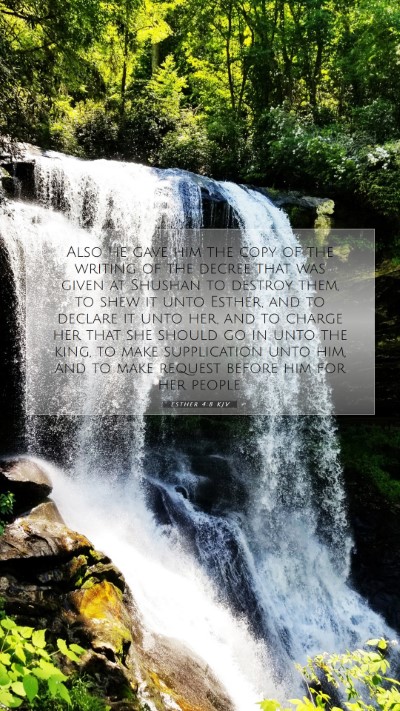Old Testament
Genesis Exodus Leviticus Numbers Deuteronomy Joshua Judges Ruth 1 Samuel 2 Samuel 1 Kings 2 Kings 1 Chronicles 2 Chronicles Ezra Nehemiah Esther Job Psalms Proverbs Ecclesiastes Song of Solomon Isaiah Jeremiah Lamentations Ezekiel Daniel Hosea Joel Amos Obadiah Jonah Micah Nahum Habakkuk Zephaniah Haggai Zechariah MalachiEsther 4:8 Meaning
What is the meaning of Esther 4:8?
Also he gave him the copy of the writing of the decree that was given at Shushan to destroy them, to shew it unto Esther, and to declare it unto her, and to charge her that she should go in unto the king, to make supplication unto him, and to make request before him for her people.
Esther 4:8 Bible Verse Meaning
Meaning and Interpretation of Esther 4:8
Esther 4:8 holds significant meaning in the context of courage and divine intervention. This verse records a pivotal moment in the Book of Esther where Mordecai instructs Esther on the impending danger facing the Jewish people and urges her to take action by going before the king.
Bible Verse Explanation
In Esther 4:8, we find the exhortation from Mordecai who sends a copy of the decree which commanded the destruction of the Jews. He urges Esther to plead with the king on behalf of her people. This communication between Mordecai and Esther is crucial as it highlights the gravity of the situation and the need for decisive action.
Bible Verse Commentary from Notable Scholars
-
Matthew Henry Commentary
Matthew Henry emphasizes that Esther’s position as queen did not exempt her from the impending fate of her people. He points out that Mordecai’s words serve as a reminder that God may place individuals in positions of influence for the purpose of delivering others. He also highlights the themes of providence and accountability in Esther’s decision-making process.
-
Albert Barnes Commentary
Albert Barnes notes the strategic importance of Esther’s royal status and how it can be used for the benefit of her people. He articulates that Mordecai believed that Esther's rise to power could be a means of divine intervention. Moreover, Barnes reflects on the significance of not remaining silent during times of crisis, urging readers to consider their role in challenging circumstances.
-
Adam Clarke Commentary
Adam Clarke interprets Mordecai's actions as a profound appeal to Esther’s sense of duty and moral obligation. He points out that the term 'deliverance' suggests not just physical salvation, but a fulfilling of God’s promises to His people. Clarke also underscores the reality of divine providence working through human actions, where Esther's potential interventions could lead to God’s intended outcomes.
Understanding Scripture in Context
The context of Esther 4:8 is rooted in the Jewish people's plight during the reign of King Ahasuerus (Xerxes). The edict for their extermination was a result of Haman's plot, driven by his animosity towards Mordecai. This scenario showcases themes of danger, treachery, and ultimately, divine sovereignty. It calls upon Esther to step out in faith despite potential risks, making it an essential scripture for discussions on courage and leadership.
Cross-References
- Esther 4:14 - Mordecai reminds Esther that deliverance will come from another place if she remains silent.
- Philippians 2:15-16 - Encouragement to shine as lights in a crooked and perverse generation, paralleling Esther’s call to act.
- Isaiah 49:15-16 - God's promise to Israel indicates His protective nature, which can be seen in the backdrop of Esther’s actions.
Bible Study Insights
For those participating in bible study groups or utilizing bible study tools, Esther 4:8 serves as an excellent lesson on the importance of recognizing one's platform and abilities in the face of injustice. It encourages believers to actively engage in their communities and consider how they can make a difference.
Applying Biblical Truths to Daily Life
Understanding this verse is vital for applying its lessons to daily life. It poses critical questions: Are we aware of our influence? Are we prepared to use it for good? These inquiries help us cultivate bible study topics around personal responsibility and leadership in faith.
Conclusion
Esther 4:8 captures a moment of profound decision-making and faith-driven action. It implores readers to grasp the essence of standing up for truth and justice, reflecting the overarching narrative of God's providence throughout Scripture. This verse, rich in meaning, offers deep insights suitable for online bible study and further bible study lessons.


